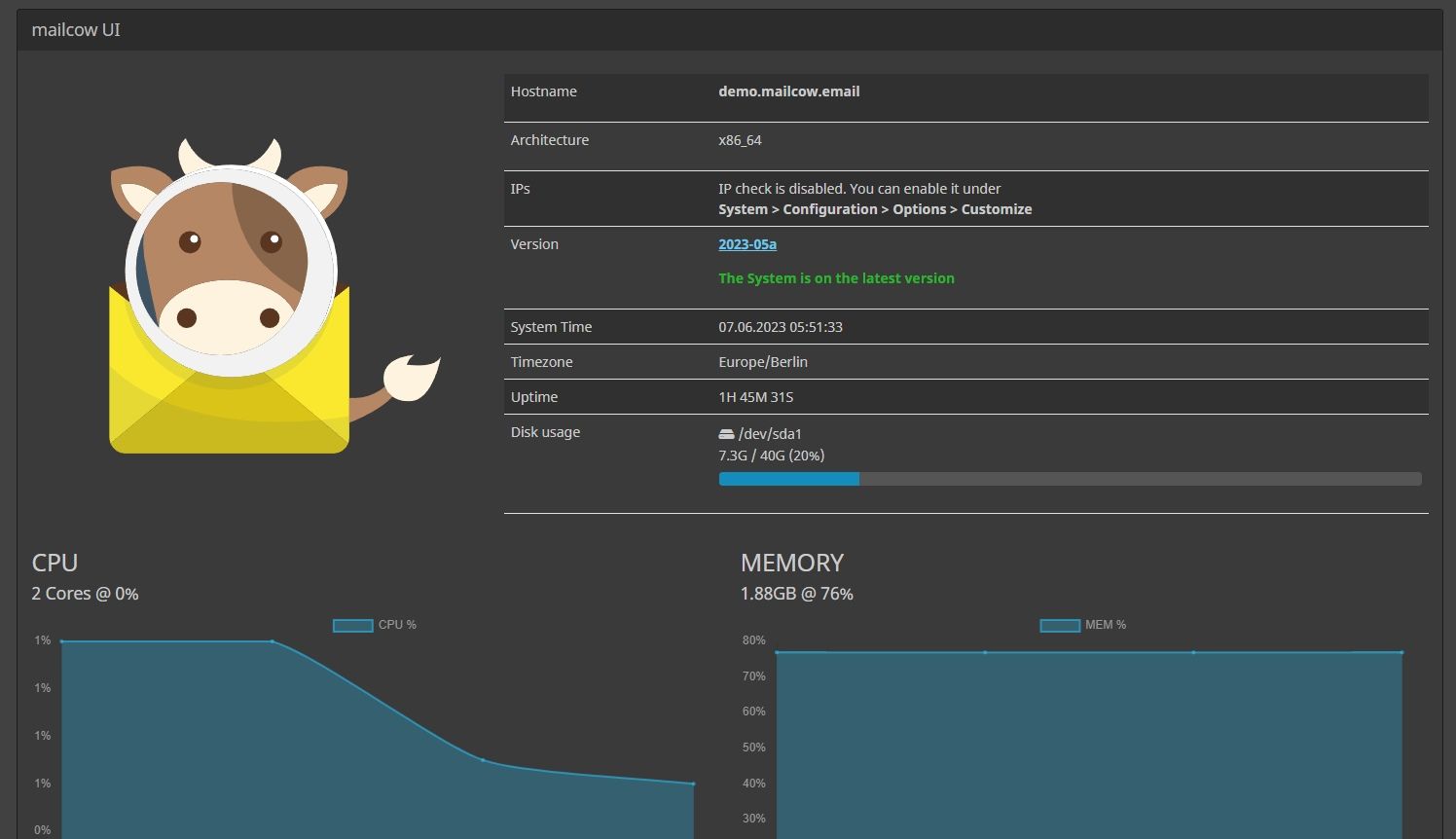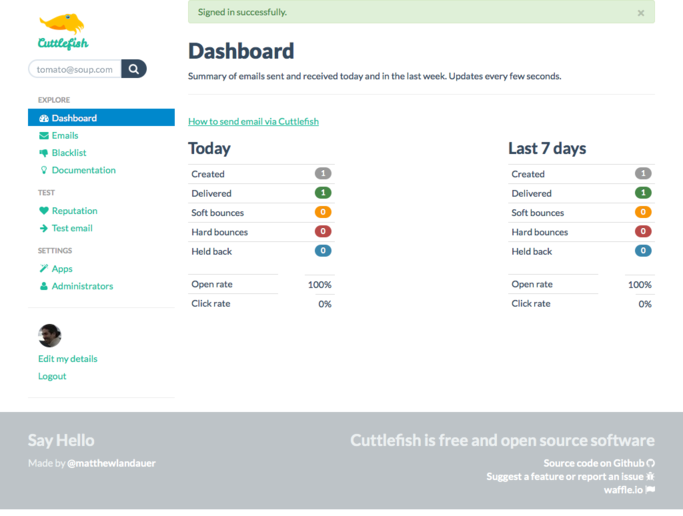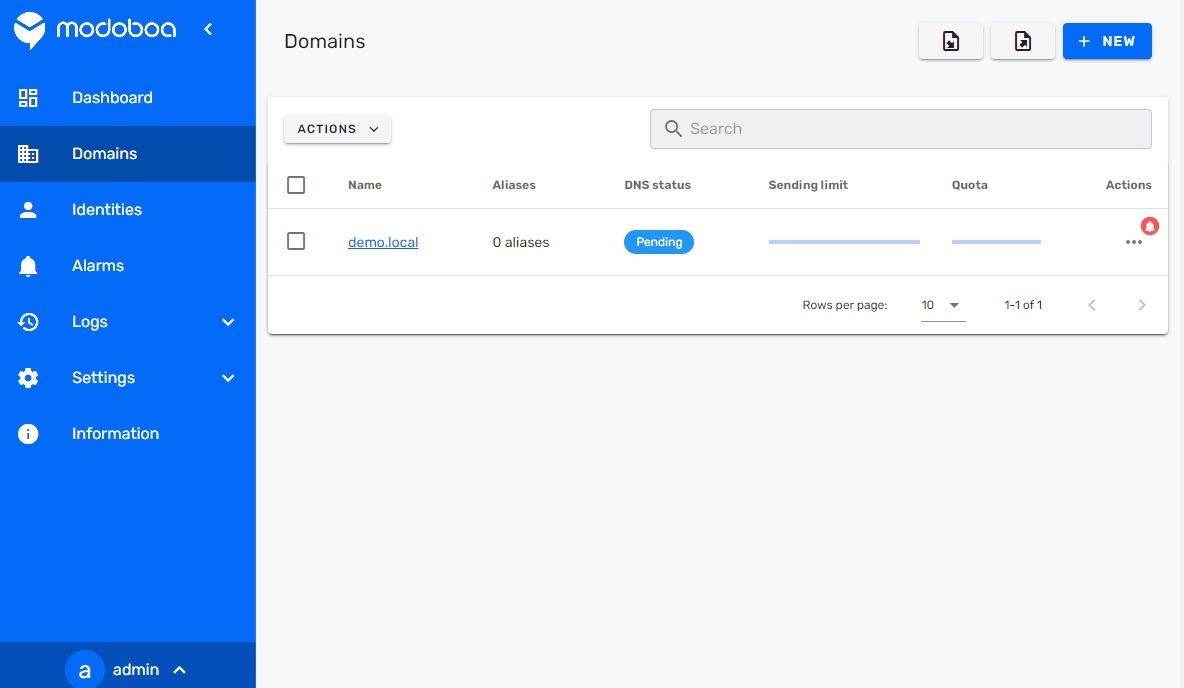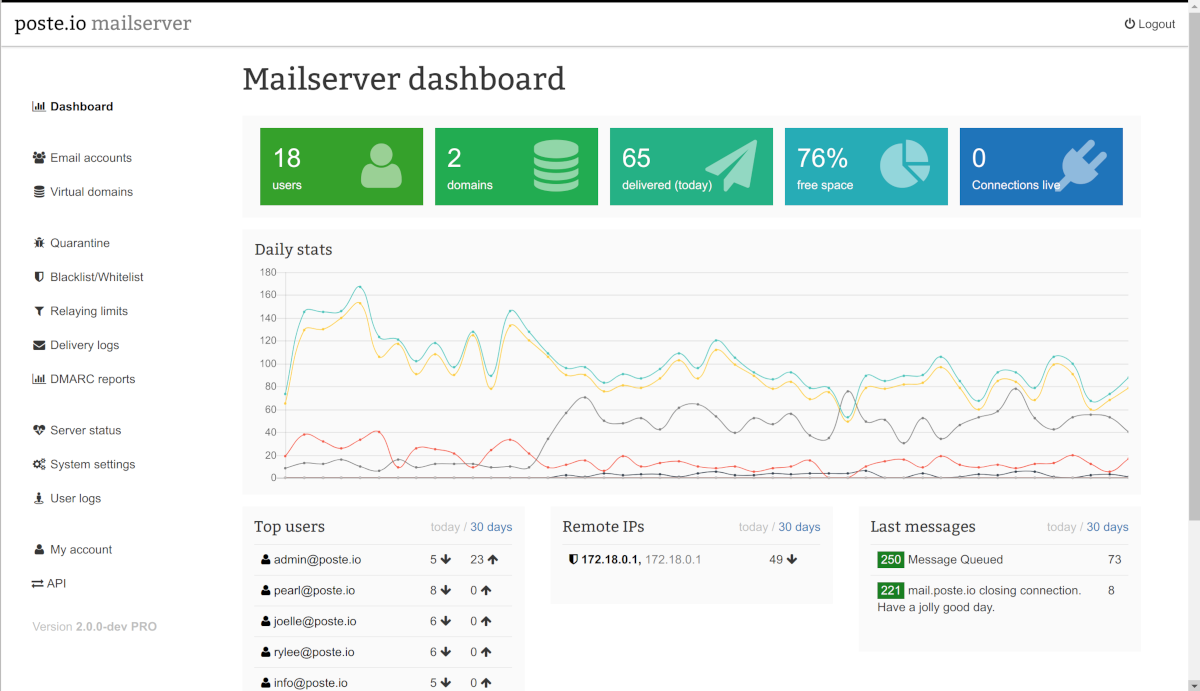
It is convenient to use email services like Gmail, Proton Mail, and Outlook to send and receive emails, no matter what email client you use.
And, for all of that, you utilize their mail servers for email transactions. So, your emails' security, reliability, and privacy depend on someone else.
But what if you want to own your email infrastructure and have the data in your control? You need an open-source email server, which should solve your problem.
If you are still curious, an email server lets you:
- Build your mail backend to store email accounts
- Take control of the security and reliability by self-hosting
- Host on your preferred server architecture
- It gives you the ability to make unlimited accounts
Of course, this is not for the end users. Sysadmins in small to midscale businesses, self hosters will find these software interesting.
Considering now you have an idea of the benefits of an open-source email server, here are some of the best options that you can find:
1. Postal
Postal is a feature-rich mail server that can be utilized by websites and servers. It is tailored for outgoing emails with no mailbox management features.
The documentation is helpful to get started with all the essentials. You can utilize a docker and configure Postal on your server.
With Postal, you can create mail servers/users for multiple organizations, access outgoing/incoming message queue, real-time delivery information, and built-in features to ensure emails get delivered.
Key Highlights:
- Real-time delivery information
- Click and open the tracking
- Tailored for outgoing emails
2. mailcow

mailcow is a mail server suite with tools that help you build a web server, manage your mailbox, and more.
If you are not looking to send transactional emails, mailcow has your back. You can consider it as a groupware.
Like other mail servers, it works with Docker, where each container represents an application, all connected.
mailcow's web interface lets you do everything from a single place. You can explore more about the project on its GitHub page or documentation.
Key Highlights:
- Easy to manage and update
- Affordable paid support
- Can be coupled with other mail servers if needed
Suggested Read 📖

3. Cuttlefish

Want a simple transactional email server? Cuttlefish is a no-nonsense open-source mail server that is incredibly easy to use.
You get a simple web UI to check the stats and keep an eye on your outgoing emails.
Compared to some full-fledged email services like Sendgird or Mailgun, Cuttlefish does not offer all kinds of features, considering it is in beta at the time. You can only opt for it if you need something super simple and you want to work reliably.
Explore more about it on its GitHub page.
Key Highlights
- Simple transactional email server
- Easy to use
4. Apache James

James is short for Java Apache Mail Enterprise Server.
As the name suggests, it is an enterprise-focused open source mail server built with Java. You can use the email server as SMTP relay or an IMAP server, as per requirements.
Compared to others, James may not be the easiest to configure or install. However, you can look at its documentation or GitHub page to judge for yourself.
Key Highlights:
- Easy administration after setup
- Reliable and used by open-source enterprises
- Distributed server
5. Haraka
Haraka is a modern open source SMTP server built with Node.js. If you can build it for your business/website, you do not need to look for other SMTP services.
The mail server is tailored to provide the best performance. One of the highlights of Haraka is that it features a modular plugin system that will allow programmers to change the server's behavior to their heart's extent.
You can consider it an excellent scalable outbound mail delivery server. Some popular names like Craigslist and DuckDuckGo Email Protection make use of Haraka.
Explore more about it on its GitHub page.
Key Highlights:
- Built using Node.js
- Plugin system to extend functionalities
6. Modoboa

Modoboa is an all-in-one open-source solution.
It can help you build a mail server and give you the ability to manage your emails. You can create calendars, add unlimited domains, create filtering rules, and access webmail. Modoboa also provides paid maintenance options if you want their professional help setting it up and managing it.
Not just an all-rounder solution, but it offers a quick way to get started with your email infrastructure.
Key Highlights:
- All-in-one option
- Paid assistance available
- Built-in monitoring
7. Postfix
Postfix is a Mail Transfer Agent. It may not be a server on its own, but it couples with some other solutions that help you build an email server.
While mailcow includes Postfix (and you can configure it along with similar solutions), you can choose to use it separately per your use case. Postfix is also the default Mail Transfer Agent in the Ubuntu server.
Postfix can be used as an external SMTP. Not to forget, you can also set up Postfix to work with Gmail. It is easy to configure, and the documentation available for it is plenty useful.
Key Highlights:
- Easy to configure
- Flexible
Suggested Read 📖

8. Maddy
Maddy is a great choice if you need a lightweight mail server implementation. The official description says it is a "Composable all-in-one mail server".
When you compare Maddy with mailcow, you will find that it offers some of the features you get with mailcow, meaning it is not just limited to outgoing emails like others.
Maddy is popular for its use case, where it can replace multiple options like Postfix with a single implementation. You can send/receive, and store messages with Maddy via SMTP and IMAP. The storage feature is in beta at the time of writing the article.
Key Highlights:
- Lightweight
- Replaces multiple use-cases that you get with options like Postfix
- No dependency on Docker
9. Dovecot
Dovecot is an open-source IMAP server that works as a Mail Delivery Agent. It can work together with Postfix as both do different things.
Compared to other solutions, it offers easy administration, reliable email-sending capabilities, and self-healing powers.
Dovecot offers a premium offering for large infrastructure with professional support.
Key Highlights:
- Easy Administration
- Self-healing capabilities
- Performance-focused
10. Poste.io

Poste.io utilizes mail server solutions like Haraku, Dovecot, and other open-source components. Ranging from tools for spam filtering to an antivirus engine.
If you want to set up an open-source mail server using some of these components and be able to manage and secure things easily, Poste.io is an excellent choice.
Key Highlights:
- Easy to manage and build using multiple open-source mail server components
- Admin panel interface
11. iRedMail
iRedMail is similar to mailcow which helps you build a mail server utilizing various open-source components. You can also manage your calendars with the mail server created.
While you can set it up for yourself, it provides paid professional support if you need it.
You get a web panel, Linux distro support to host it on, and the ability to create unlimited accounts.
Key Highlights:
- Easy to use
- Web panel for easy management
12. Mailu

Mailu is a Docker-based mail server that gives you the best of everything while limiting some features.
That does not mean it is bad; Mailu aims to focus on the necessary features without adding many capabilities that are not useful for most. Even with this objective, it stands out by adding ARM support, Kubernetes support, and a couple more things.
You get a standard mail server, advanced email features, a web admin interface, and privacy-focused features.
Key Highlights:
- Simple interface
- Focused solution without bells and whistles
- ARM support
Ready to Build and Manage Your Email Server?
With open-source tools and email servers, you can take control of your data and manage/optimize email transactions for your business or website.
As I mentioned, it takes a lot of work to do it. So, open-source self-hostable email servers can work if you want to have a customized experience and have a team that can be responsible for it.
💬 I am sure there are many more options, like mail in a box, to help you deploy a mail server quickly.
Here, we tried to pick the best ones for your convenience. What is your favorite open-source email server?



